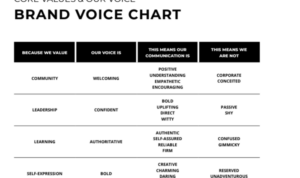Online Business Compliance sets the stage for understanding the legal requirements, data protection, terms of service, privacy policy, and payment processing compliance needed to thrive in the online business world. Get ready to dive into the essentials of ensuring your online business stays on the right side of the law and data protection regulations.
Legal Requirements

Operating an online business comes with certain legal requirements that need to be adhered to in order to ensure compliance and avoid potential legal issues. These requirements are put in place to protect consumers, regulate business practices, and promote fair competition in the digital marketplace.
Key Legal Requirements
- Business Registration: Online businesses must register their company name, obtain the necessary permits and licenses, and comply with local, state, and federal regulations.
- Privacy Policies: Online businesses are required to have a privacy policy that Artikels how they collect, use, and protect customer data.
- Terms and Conditions: It is essential for online businesses to have clear terms and conditions that govern the use of their website, products, and services.
Compliance Regulations
- GDPR: The General Data Protection Regulation (GDPR) is a key compliance regulation that online businesses need to follow when handling customer data of European Union residents.
- PCI DSS: The Payment Card Industry Data Security Standard (PCI DSS) sets requirements for securely processing credit card transactions online.
- COPPA: The Children’s Online Privacy Protection Act (COPPA) regulates the collection of personal information from children under the age of 13 on websites and online platforms.
Online vs. Brick-and-Mortar Businesses
- Accessibility: Online businesses have a wider reach and are accessible to customers globally, while brick-and-mortar businesses are limited to a specific geographic location.
- Operating Hours: Online businesses can operate 24/7, providing customers with the convenience of making purchases at any time, unlike traditional businesses with set operating hours.
- Cybersecurity: Online businesses face unique cybersecurity challenges and must implement measures to protect against data breaches and cyber attacks, which may not be as prevalent for brick-and-mortar businesses.
Data Protection
Data protection compliance is crucial for online businesses to safeguard sensitive information and maintain customer trust. Failure to comply with data protection laws can result in severe consequences, including hefty fines, reputational damage, and loss of customer confidence.
Importance of Data Protection Compliance
- Protects sensitive customer data from cyber threats and hackers
- Builds trust with customers by ensuring their information is secure
- Compliance helps in avoiding legal repercussions and financial penalties
Ensuring Compliance with Data Protection Laws
- Implement strong data encryption methods to secure customer data
- Regularly update security measures to stay ahead of evolving threats
- Train employees on data protection protocols and best practices
- Conduct regular audits to ensure compliance with regulations
Consequences of Non-Compliance
-
Hefty fines imposed by regulatory bodies
- Loss of customer trust and reputation damage
- Legal actions and lawsuits from affected parties
- Decreased competitiveness in the market due to negative publicity
Terms of Service and Privacy Policy
Having comprehensive terms of service and privacy policy on an online business website is crucial for establishing trust with customers, protecting the business from legal issues, and ensuring compliance with regulations. These documents Artikel the rules and guidelines that users must adhere to when interacting with the website, as well as how their personal information will be collected, stored, and used.
Key Elements in Terms of Service and Privacy Policy
- Clear and concise language: Ensure that the terms are easy to understand for users.
- Scope of services: Describe the services offered and any limitations or restrictions.
- User responsibilities: Artikel user obligations and prohibited activities.
- Intellectual property rights: Specify ownership of content and trademarks.
- Dispute resolution: Detail how disputes will be handled, including arbitration or mediation processes.
Best Practices for Updating and Maintaining Terms of Service and Privacy Policy
- Regular reviews: Conduct periodic reviews to ensure that the documents reflect any changes in services or regulations.
- Transparency: Clearly communicate any updates or changes to users to maintain transparency.
- User consent: Obtain user consent for any significant changes to the terms or policies.
- Accessibility: Make sure that the terms and policies are easily accessible on the website.
- Legal review: Consult with legal professionals to ensure that the documents are compliant with relevant laws.
Payment Processing Compliance: Online Business Compliance

Online businesses must adhere to various compliance requirements when it comes to payment processing. Ensuring secure and compliant payment systems is crucial for maintaining trust with customers and avoiding legal issues.
Compliance Requirements
When it comes to payment processing compliance, online businesses need to follow strict guidelines to protect sensitive customer information and ensure secure transactions. Some key requirements include:
- Compliance with Payment Card Industry Data Security Standard (PCI DSS)
- Adherence to anti-money laundering (AML) regulations
- Implementation of strong encryption protocols
- Verification of customer identities for high-risk transactions
Common Challenges, Online Business Compliance
Online businesses often face challenges in maintaining compliance with payment regulations due to:
- Complexity of regulations and frequent updates
- Difficulty in keeping up with evolving payment technologies
- Risk of data breaches and cyber attacks
- Managing compliance across multiple payment channels
Tips for Secure Payment Processing
To ensure secure and compliant payment processing systems, online businesses can follow these tips:
- Regularly update security measures and software patches
- Implement multi-factor authentication for added protection
- Monitor transactions for any suspicious activity
- Provide clear information to customers about payment security measures





